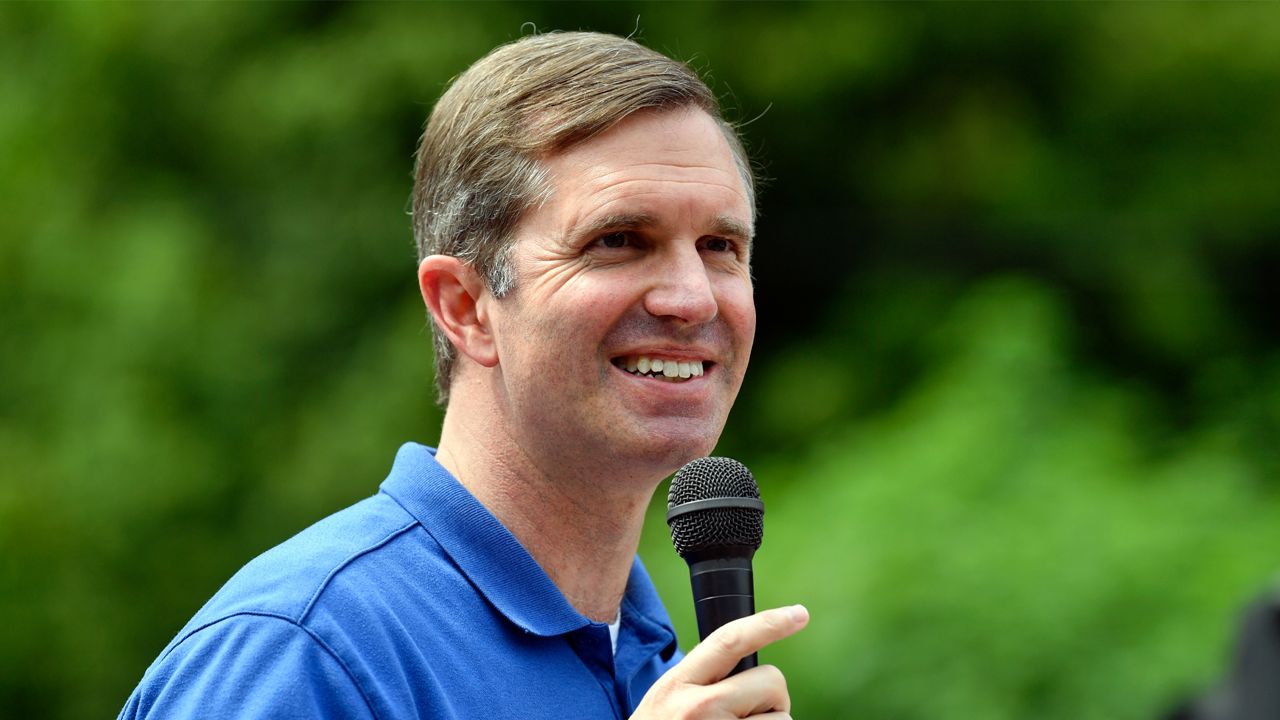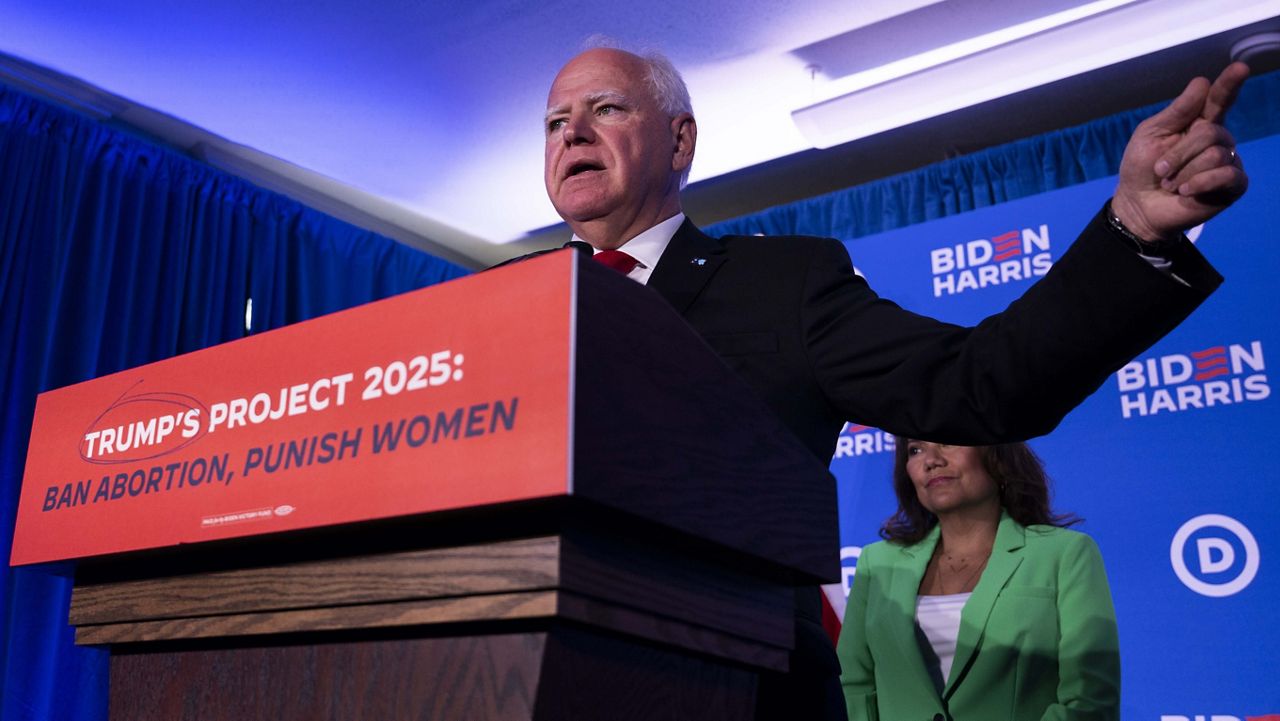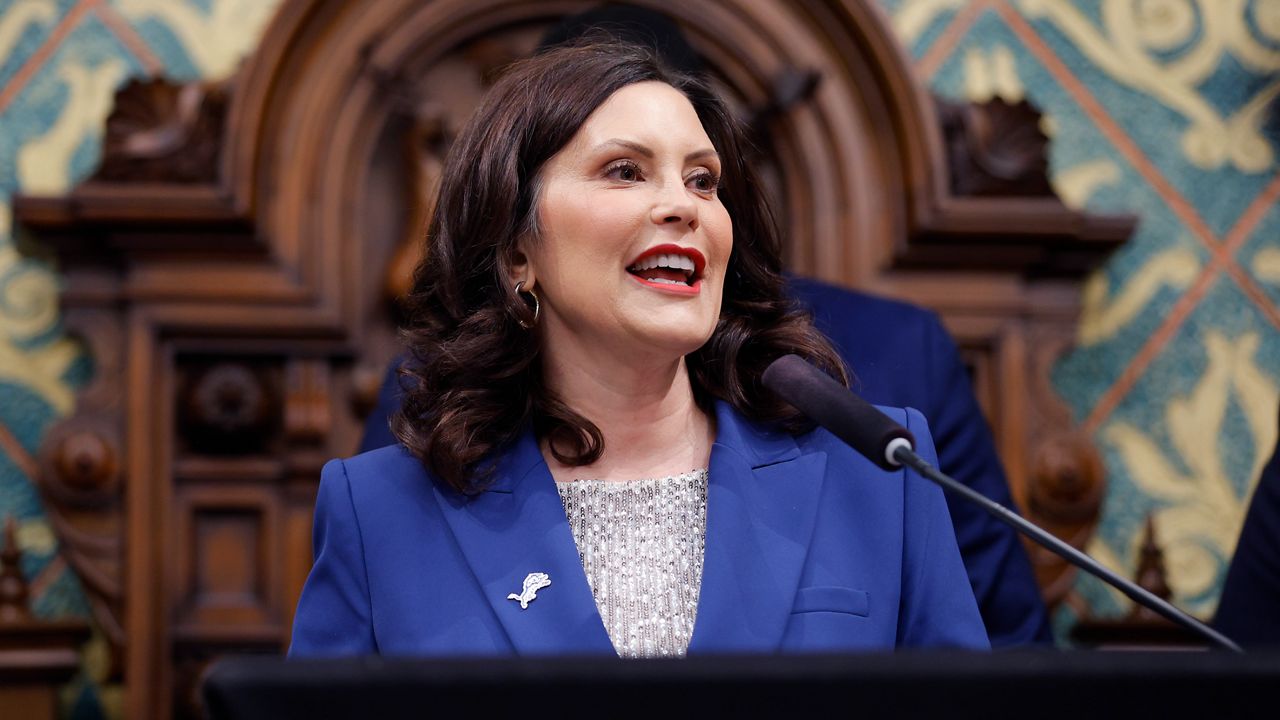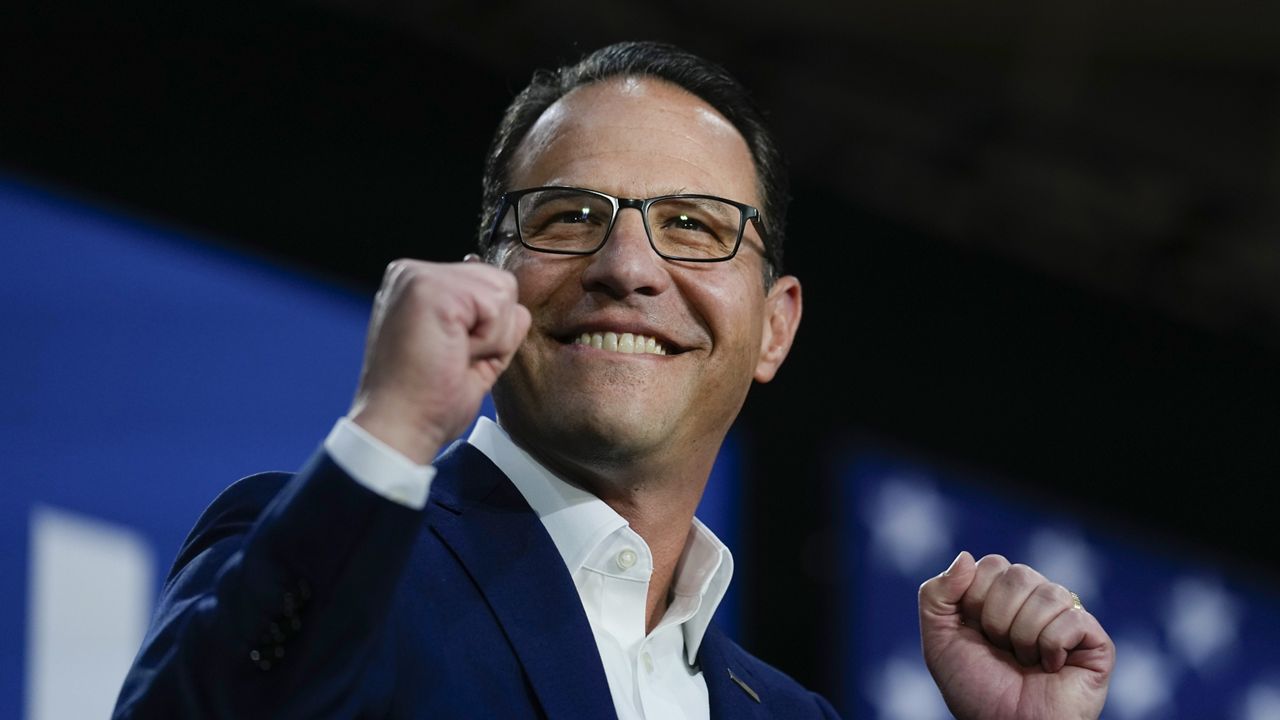Democrat Josh Shapiro had a dual message for enthusiastic voters in suburban Philadelphia this week, telling them Kamala Harris belongs in the White House — and then reminding them of all he's done as governor of battleground Pennsylvania. Kentucky Gov. Andy Beshear, likewise, told voters in Georgia that Harris has the makings of "a great president" — and then highlighted the elections he's won as a Democrat in Republican territory.
The two governors were demonstrating a time-honored tradition in presidential campaigns: Summertime auditions from vice presidential contenders who walk the line between open self-promotion and loyal advocacy for the potential boss.
Vice President Harris, the likely Democratic nominee, appears intent on making a choice that she's comfortable with personally and that can expand her electoral appeal. Her campaign has been vetting about a dozen potential running mates, according to people familiar with the search process. Shapiro and Arizona Sen. Mark Kelly are seen as among the front-runners, according to the people.
Harris advisers, led by former Attorney General Eric Holder, have been combing through reams of paperwork submitted by potential running mates, while the candidate herself is holding personal conversations with the finalists, according to a person familiar with the matter.
Harris, according to another person familiar with the matter, is seeking someone with executive experience who can also serve as a governing partner. Notions of a so-called short list have not stopped those on the Democrats' broader national bench from finding the spotlight.
"I'm not going to talk about the interactions I've had with the campaign," Illinois Gov. J.B. Pritzker declared recently on MSNBC. He added, though: "Let's just say I'm aware that the vetting process is quite an in depth one." Then he listed his accomplishments, offering that he was the only Midwestern governor to raise his state minimum wage to $15 per hour.
Michigan Gov. Gretchen Whitmer, once held out as an ideal nominee if Biden bailed out, has said, more or less, that she's not a contender. But she appeared Monday with Shapiro in Pennsylvania and mused on MSNBC last week that "two women on the ticket would be exciting."
Harris would be the first woman, first Black woman and first person of South Asian descent to serve as president. Many Democrats have argued she should balance her ticket both demographically and politically.

Shapiro, 51, is among the most popular U.S. governors, winning his 2022 election in a rout over a Trump-endorsed Republican. He's an outspoken supporter of abortion rights who has won three statewide elections in Pennsylvania. His speaking style draws comparisons to former President Barack Obama. But he has taken flak from the left for his support for Israel's war on Hamas, a private school voucher program and natural gas infrastructure.
His allies argue that he would help Harris win Pennsylvania, complicating if not blocking Republican Donald Trump's path to an Electoral College majority.
Like all contenders, Shapiro sidesteps questions about the vetting process and stresses Harris should not be pressured. But he's mentioned more than once that he's known her for nearly two decades.
Beshear stands out in a heavily Republican state. During his weekend stop in Georgia, he talked of winning votes in "tough counties" but emphasized liberal bona fides: "I am a proud pro-union governor. I am a proud pro-choice governor. I am a proud public education governor. I am a proud pro-diversity governor."
Closest in age to JD Vance among the Democrats' possibilities, Beshear openly mocks Trump's understudy for presenting himself as a son of Appalachia. "I mean, there's a county that JD Vance says he's from in Kentucky – and I won it by 22 points last November," he said.
Back home in Frankfort recently, Beshear played down the importance of being from a battleground, saying, "About every successful ticket going back to 2000 did not have someone in a swing state."
Of course, sometimes the spotlight can produce mistakes. Twice in Georgia, Beshear mispronounced Harris' first name as "Kah-MAH-lah," rather than the correct "KAH-mah-lah."
Beshear and Shapiro were both state attorneys general, like Harris, before becoming governors. But their tenures did not overlap considerably with Harris' service in California. She worked more closely with North Carolina Gov. Roy Cooper during his days as an attorney general, but Cooper on Monday said he had opted not to be considered for vice president.

Minnesota Gov. Tim Walz, 60, is a favorite of some progressives. He brings an atypical national political resume: He was a non-commissioned Army officer, public school teacher and state high school championship football coach before entering politics. Before being elected governor, he was one of the last white Democrats in Congress to represent a mostly rural, small-town House district — a notable juxtaposition for Harris, the Bay Area Californian.
"She will make the best choice she's going to," Walz said Sunday on CNN, a day after Trump held a mass rally in St. Cloud, Minnesota. "One way or another, she is going to win in November, and that's going to benefit everyone," Walz said, including "a lot of those folks who were out in St. Cloud with the (former) president."
Kelly, 60, is the only top contender in Congress. He boasts an impressive military resume and experience as an astronaut. He has strong Latino support locally and solid relationships with Arizona officials along the U.S.-Mexico border. That balance could give him credibility on immigration policy as Republicans frame high numbers of migrant border crossings as a national crisis.
But Kelly has had to shore up his credentials with labor, a key Democratic faction. Kelly changed his position on union-backed legislation known as the PRO Act, which would make it easier to organize workers. He was one of just a handful of Democrats who didn't co-sponsor the bill, saying at the time he supported the goals but had concerns. Following opposition from labor leaders, Kelly said this month he would vote for the bill if it came up for a vote.

Harris is expected to announce her pick in time for Democratic delegates to ratify her decision in a virtual nominating vote that could conclude by Aug. 7. Whatever her timetable, the media and campaign circuit is allowing plenty of Democrats additional time in the spotlight.
In the meantime, everyone seems to have an opinion.
Steven Benjamin, the White House director of public engagement, laughed as he told reporters on Air Force One on Monday that his office has received thousands of recommendations from around the country.
Donna Brazile, who managed Democrat Al Gore's presidential campaign in 2000 and was instrumental in urging Biden to pick Harris in 2020, said the selection process involves "a lot of noise" that underplays the complexity of the decision.
"The most important stage is what the lawyers will do to you," she said, with a laugh and emphasizing the seriousness. "It's worse than a dental hygiene check. ... Before you get to suitability and other factors, before it gets to political people like me, they've done a forensic examination of your life."



